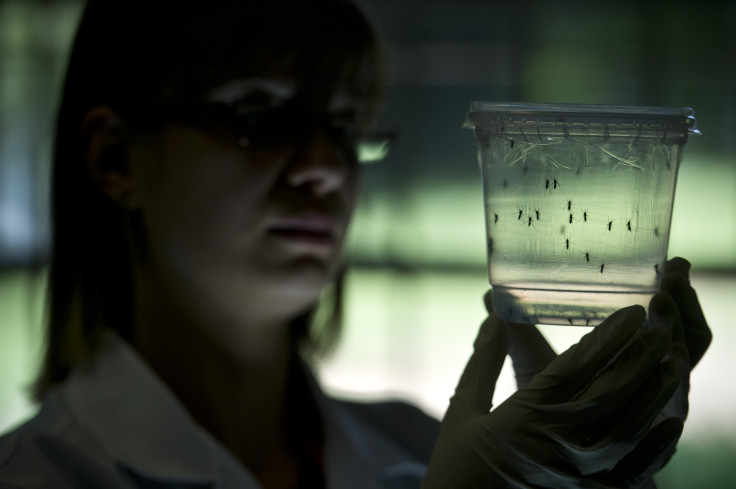What Is Zika Virus? Case Confirmed In Texas

The U.S. Centers for Disease Control and Prevention (CDC) confirmed a case of the Zika virus in Houston, KHOU-TV reported Monday. The person infected was reportedly a traveler who had recently returned from an undisclosed country.
Common symptoms associated with the virus include fever, rash, joint pain and bloodshot eyes, and the illness is typically mild with symptoms lasting from several days to a week, according to the CDC. Outbreaks of Zika have occurred in areas of Africa, Southeast Asia, the Pacific Islands and the Americas. Just last month, Puerto Rico reported its first confirmed case.
“Because the Aedes species mosquitoes that spread Zika virus are found throughout the world, it is likely that outbreaks will spread to new countries,” the CDC stated on its website.

While the virus is not thought to be fatal, it might pose a risk to fetuses; it has been linked to microcephaly, a condition in which babies have abnormally small heads and incomplete brain development. Officials are reportedly investigating whether Brazil’s spike in rates of microcephaly in 2015 is connected to the country’s Zika infections, according to Time, and officials have recommended that Brazilian women delay getting pregnant if possible until more information is known.
“Prevention is key to reducing the risk of Zika virus infection,” said Umair A. Shah, executive director of Harris County Public Health and Environmental Services in Houston, KHOU reported. “Zika virus infections occur throughout the world. We encourage individuals traveling to areas where the virus has been identified to protect themselves against mosquito bites, and to contact their health care provider immediately if they develop Zika virus-like symptoms.”
While there is no vaccine to prevent Zika or medicine to treat it, the CDC advised that travelers can protect themselves from the disease by taking steps to prevent mosquito bites: Use insect repellent, wear long sleeves and pants and to stay in places with air conditioning or that use window and door screens.
© Copyright IBTimes 2024. All rights reserved.





















